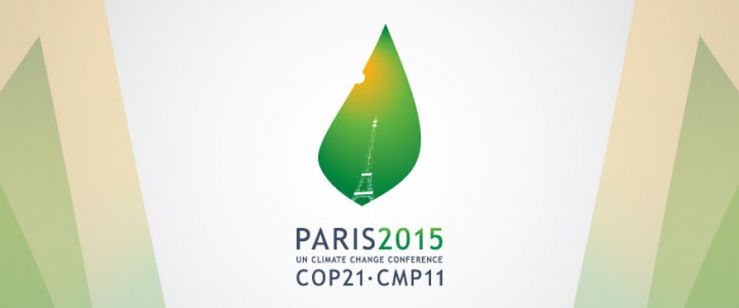What is the COP21 Climate Agreement and How will it Effect Working People?
December 29, 2015
On Dec. 12 for the very first time, close to 200 nations reached a commitment to begin to limit global temperature increases by finally phasing out the use of fossil fuels. The agreement was reached at COP21, the UN Climate Change Conference in Paris.
The healthcare workers of 1199SEIU helped to lead the fight for the agreement through participating in the People’s Climate March, publishing a supportive op-ed with the president of the Sierra Club, and sending our Secretary Treasurer Maria Castaneda to participate in the conference.
If faithfully adhered to, the agreement will achieve far larger cuts in emissions than any previous climate accord. Specifically, it commits governments to the goal of limiting global warming to 1.5° C, or 2.7° F, by the year 2050.
The agreement also calls for assisting developing nations – those least responsible for global warming, yet most affected – to fund their efforts to reduce greenhouse gas emissions. This shared sense of urgency has put the world on a safer trajectory, but it still falls short in important areas.
"Even if all the initial targets set in Paris are met, we’ll only be part of the way there when it comes to reducing carbon from the atmosphere, so we cannot be complacent because of today’s agreement,” said President Barack Obama.
In fact, the pact explicitly recognizes that the emission cuts pledged by nations ahead and during the talks are not ambitious enough. To compensate for the shortfall, the agreement sets up a regular schedule of review that will encourage nations to raise their goals over time.
“The COP21 Paris agreement is a good plan towards building a healthy planet,” says 1199SEIU Secretary Treasurer Maria Castaneda, who represented the Union at the conference. “If decisively implemented, it could help avert a catastrophic public health crisis.”
Labor and civil society participants at COP 21 have made it clear that the conference should be viewed as a decisive stage in an ongoing process and not an end in itself.
“That we have any agreement at all, of course, is testament to the mighty movement that activists around the world have built over the last five years,” says Bill McKibben, the founder of 350.org, a leading climate protection organization.
“But what this means is that we need to build the movement even bigger in the coming years, so that the Paris agreement turns into a floor and not a ceiling for action.” McKibben adds.
Representatives particularly of poor countries in the global south and low-lying nations say they are already feeling the effects of a changing climate and that the pace away from fossil fuels and toward clean, renewable forms of energy must be quickened.
Nor are the richer industrialized countries exempt. 2015 is on pace to become the hottest year in recorded history, breaking the mark set in 2014.
Speakers at COP 21 documented the relationship of climate change to extreme weather, rising oceans, extinction of species, destruction of agriculture and the worsening of health care. They described climate change’s connection to wars, mass migration, and economic, racial, and gender injustices. With the crisis also comes opportunity. Depending on the strength of civil society, COP21 can mark the beginning of the end of fossil fuels and the dawn of the renewables revolution.
That means a just transition for workers in the fossil fuel industry, and millions of green-collar jobs. A green economy creates three times as many jobs as an economy based on fossil fuels.
Leaders say that the mass movement dedicated to climate justice, including representatives of labor, environment, human rights, youth, gender equality, indigenous groups and others must continue to build on our victories.
“The U.S. ranks number two in global greenhouse gas emissions. Our healthcare sector ranks eight among emitters in the nation,” Castaneda adds.
“We have to implement preventative solutions to the respiratory and cardiovascular diseases and heat-related epidemics and deaths, food and water insecurity and massive displacements of people and workers all due to extreme weather events.
“As frontline healthcare workers we can contribute to the greening of our workplace through various measures, including proper waste disposal, and water and energy conservation. Together with our employers, we can create healthy workplaces and communities for all.
“This is the Paris COP21 challenge. Let's take the health care 2020 challenge, a campaign to address the effects of climate change on public health.
“The time to create a healthy planet is now!”


